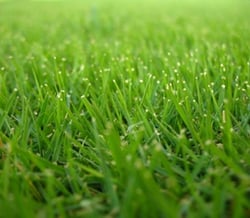Green Lawn Tips
Remember what your lawn looked like last year? Good or bad lets get it green. Here are a few tips to get started.
Americans spend over $6.4 Billion a year on lawn care, according to the Professional Lawn Care Association of America. Why not get started in the spring to ensure a beautiful green and healthy lawn.
Start out by checking the soil pH levels. Winter can alter the soil pH and create conditions that are friendly to weeds and disease. The soils pH should read between 6.5 and 7.0 which are slightly acidic. You can test your soils pH by purchasing a pH tester. After the soil has been checked, invest in a rental aerator. In high traffic areas grass becomes compacted. The aerator will draw wine cork-sized plugs out of the lawn surface giving roots the room to spread and allow for air, nutrients and moisture to penetrate the soil.
Pro Tip 1
The soil cores should not be raked always, as they contain bacteria and nutrients that will return to the soil.
In the early spring, apply a pre-emergent weed control to prevent crabgrass.
Pro Tip 2
½ the dosage of preemergent and reapply in 3 weeks to increase the treatment duration. Try to get your immediate neighbors to do the same so you encompass a larger spread of weed control. If your neighbor does not apply preemergent, weeds can grow and move to your yard.
During late spring fix any patchy places and apply your seed. When seeding in the spring it is pertinent that you provide consistent watering to allow the seed to germinate
Pro Tip 3
Water twice a day for 7 to 10 days to allow the seed to germinate.
When watering, make sure one inch of water to 12 inches of soil is preferred ratio for watering actively growing grass. You most likely will have to seed again in the fall months.
With the spring upon us, it is very important to prepare your lawn for the warmer, sunnier months ahead. Having a nice, thick green lawn helps with excess rain, capturing the moisture so it does not end up in your house and produce mold.
IDo you think you have mold in your home or dwelling? Curren can answer your questions call now at 888-301-1050 or email at info@currenenvironmental.com.


